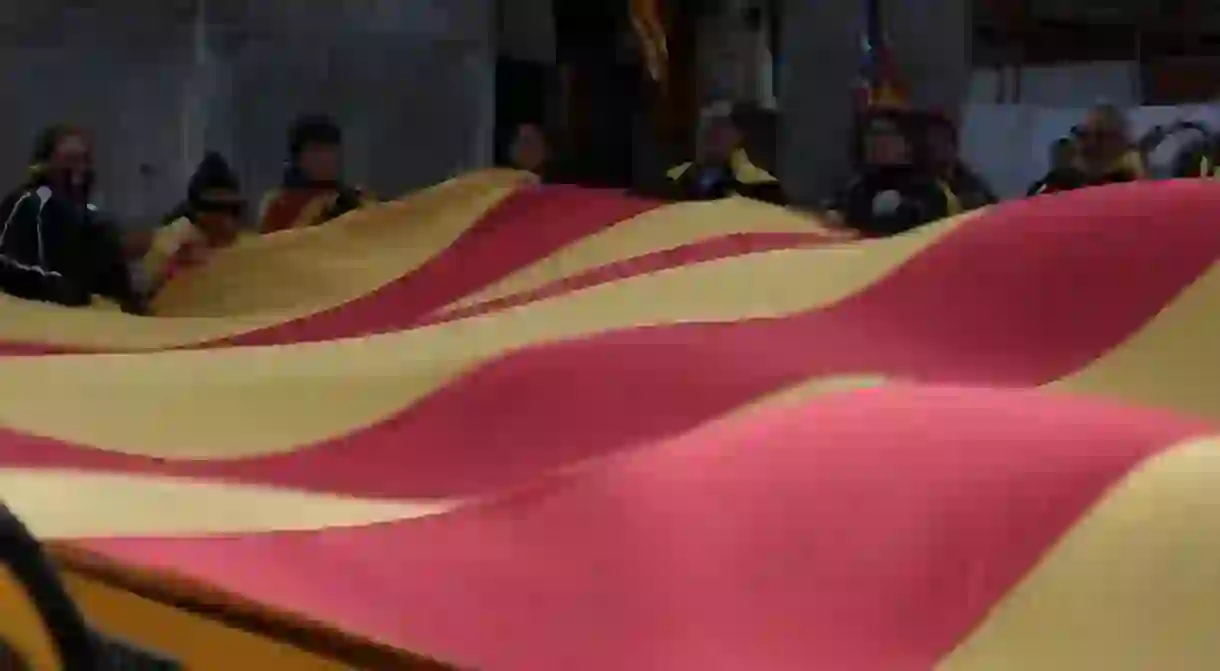What Happens On The Catalan National Day?

Each year on September the 11th, large processions and demonstrations are organized throughout the towns and cities of Catalonia on what is known as the Catalan National Day, or more commonly ‘La Diada.’ The occasion marks an important date in the history of the area and one which continues to have particular significance to those who believe in an independent region.
What happened on September 11th?
It was on this day in 1714 that the Catalan troops were defeated in Barcelona at the end of the War of Spanish Succession, which had lasted since July 1702. The war was fought to decide who would take over as King of Spain after the previous ruler, the Habsburg King Charles II, had died childless and so with no one to take over the throne. The war opposed Archduke Charles of Austria on the side of the Habsburg Monarchy, backed by England, Scotland, Prussia and Holland, and the forces of the Bourbon king, Philip V of Spain (originally from France).

The Catalan capital had been seized by Archduke Charles in 1705, and it wasn’t long before the local authorities, known as the Catalan Courts, accepted the Archduke as their new ruler. Until then, and since 1641, the area had been an independent Republic with its own political autonomy and constitution, under the protection of France.
However, towards the end of the War of Succession, a peace deal known as the Utrecht Treaty was signed and granted power to the Bourbon king. The Catalan province was required to hand over power to the newly appointed ruler, but resistance was fought, and in 1714, the army of King Philip attacked the last of the Catalan troops in what is known as the Siege of Barcelona. The city finally capitulated on September 11, 1714, marking a devastating political defeat for the region.
As a result of what was seen as a betrayal on behalf of the Catalan province, the Bourbon king imposed the Nueva Planta decree which revoked the region’s political autonomy and abolished its constitution. There were also important administrative sanctions and the University of Barcelona, one of the oldest in Spain, was moved to Cervera. The Catalan language was officially banned, having major cultural repercussions in the area.
Why is this day so important in Catalonia?
The date was first marked as a national holiday in the province in 1886 and quickly became a symbol of its national identity and heritage. For many, September 11th represents the day that Catalonia’s independence was lost for the last time in history and the beginning of its submission to the Spanish monarchy.

Unsurprisingly, given the wide anti-Catalan sentiment of the authorities at that time, the celebration of the Catalan National Day was forbidden throughout the dictatorship of General Franco. It was not until 1980 that the national day was once again celebrated, upon the restoration of the autonomous government of Catalonia.
Significantly, there is a large independence movement here in Catalonia, with many citizens wishing to see the area regain full political independence and freedom from the central political powers in Madrid. For this reason, each year on the Diada, processions and demonstrations are organized by political parties, trade unions, and other pro-independence movements who see this as an occasion to display their opposition.

However, for some people, it is also simply a day to celebrate Catalan culture and identity, without any particular political message. In many towns and villages across Catalonia, festivities are organized with displays of traditional folklore such as the sardenya – and ancient type of group dance – or castellers, the impressive human pyramids. There, the Diada is simply an occasion to celebrate the best of Catalan culture and take pride in its cultural heritage.













